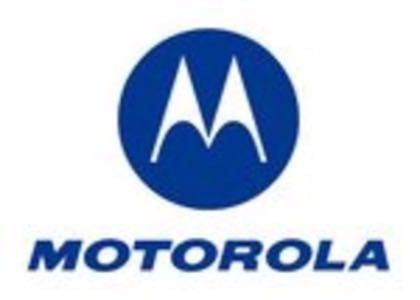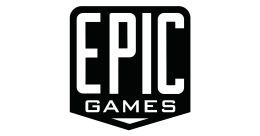The most open thing going on in the Android realm today may be warfare. Today’s announcement of Google’s intent to acquire Motorola Mobility, the producer of many Android phones and a prominent contributor to the Droid brand, points to a new and severely altered landscape for mobile apps where absolutely every platform is controlled by a principal corporate entity that is directly partnered with, owns, or is a phone maker.

“Google has drawn some lines in the sand by essentially becoming a competitor to OEMs with whom it has previously aligned as a partner,” says Yahoo Canada technology analyst Carmi Levy. “If you’re in the corner office of Samsung or HTC, your world just became a lot more complex. They need to consider whether they want to continue contributing to the growth of what is now going to be their largest competitor.”
COMPLETE READWRITEWEB COVERAGE from Dan Rowinski:
- Patents, Partners & Capitalistic Greed: Factors That Led Google to Buy Motorola Mobility
- Google: Buying Motorola is “Pro-Competitive” [Transcript]
- Google to Acquire Motorola Mobility, Android Ecosystem Shudders
“Rarely does competing with your own licensees ever work,” adds Kevin Burden, vice president for mobile devices at ABI Research. “This is one of the main reasons Palm split into two companies (hardware / OS) in the first half of the last decade, and why HP initially said it would not license webOS. It can work if there is a manageable number of key licensees, such as what HP is exploring with Samsung. But when it comes to managing many relationships, there will be problems. However, where else do they go? Windows Phone 7? The Microsoft + Nokia tie-up doesn’t make that platform any more attractive.”
On July 29, Google lost its $990 million bid for the patent portfolio of Nortel, which includes nearly 6,000 essential patents for wireless and 4G communication. That led Google’s chief legal officer David Drummond to sound a battle cry last August 3, with a broad brush painting all of Android’s competitors as a single organized conspiracy against Google, and saying to developers you’re either with Google or against Google.
“Android’s success has yielded… a hostile, organized campaign against Android by Microsoft, Oracle, Apple and other companies, waged through bogus patents,” Drummond wrote. “They’re doing this by banding together to acquire Novell’s old patents and Nortel’s old patents, to make sure Google didn’t get them.”
What establishes the validity of a mobile platform today is whether its proprietor has control of its intellectual property, and whether it is effectively leveraging that IP for maximum gain. Google’s failure to acquire Novell’s and Nortel’s patent portfolios put it and Android at a significant disadvantage, because the companies that hold the keys to the most IP can set the terms for licensing. Google may have had the most to lose, facing a possible barrage of attack from Microsoft which now co-owns the Nortel patents for voice services and the Novell patents upon which SUSE Linux is said to be based; Apple, which now co-owns the Nortel patents for manufacturing and semiconductors; and Oracle – which isn’t even a wireless firm – which owns the other huge chunk of IP upon which Android is based, Java.
Last December, Gartner analyst Richard Jones – a former Novell researcher – said he believed the real purpose of Novell’s sale to the CPTN group that includes Microsoft, Apple, Oracle, and storage systems maker EMC was not to attack Google, but rather to keep those patents out of the hands of smaller organizations that could threaten everyone else, including Google, with arbitrary licensing fees and lawsuits.
Analyst Levy takes a different approach: “The patent war is already well under way. It’s happening whether anyone wants to admit it or not. Clearly, corporate strategists on all sides of the equation are sitting down now, drawing up their battle plans. And make no mistake, Google has initiated a fairly significant battle here.”
Google’s latest victory in this battle is, as Levy sees it, a successful raid of the last unsecured ammo dump. “Google gains access to all of Motorola’s intellectual property, which in fact shields it from being on the wrong side of the patent curve. Even if Google never releases a Google-branded phone through the Motorola channel, it now has access to intellectual property, and it can basically use that to drive licensing revenue going forward.”
Won’t this acquisition change the meaning of “open” with respect to mobile apps development? To some extent, yes, believes ABI’s Kevin Burden, but not too dramatically: “The difference, still, is that Android is a licensable OS that encouraged OEM to innovate on in order to differentiate,” he tells us. What will happen, though, is a short-term slowdown in Android innovation – a slowdown he says had started already “because the platform has matured to incorporate many of the innovations OEMs were adding to their own implementations. The need to ‘finish off’ the platform just isn’t the pressing need it was once was. This news, however, will have a further effect on the level of innovation each OEM dedicates to the platform.”
To say the deal is subject to regulatory approval is to say the last budget cutting deal from Congress required some discussion. Could the inevitable lag time between now and final approval from the European Union, let alone U.S. regulators, give Windows Phone 7, RIM’s new QNX platform for BlackBerry, and HP’s webOS valuable time to catch up?
Absolutely, says Burden. “This is plays right into what HP and RIM want,” he tells RWW. “More so from RIM since it needs a break and more time to get QNX into smartphones. The slowdown in contributions to Android is likely to have more effect in the next quarter.”
Journalist and analyst Tristan Louis disagrees. In a blog post this afternoon for TNL.net, Louis wrote, “RIM and HP (due to the Palm unit) strike me as the biggest losers in this market. Neither of them has a strong footing in the marketplace and today’s announcement seems to further strengthen the Android position, giving them less room to maneuver. Furthermore, the rich patent portfolio Google is acquiring may mean that the two companies will have to pay more royalties to a business that has been killing them. Either way, the future is, at best, uncertain (if they were to license their OS out, they may have a chance).”
But one other beneficiary of a short-term slowdown in Android development may be HTML5, and the trends for Web developers – most notably jQuery Mobile and Sencha – to gather cross-platform support for indisputably open, Web-based standards as an alternative approach for mobile apps.
“The promise of the general Web – which was, ‘Develop once, deploy anywhere,’ – will finally come to mobile devices as well,” states Carmi Levy. “HTML5 specifically holds great promise to move us past this Tower of Babel-type approach to platform-specific app development. We’re not quite there yet, though. There’s still enough time for there to be a superpower apps-based arms race between Apple and Google, and both of those companies are going to play the uniqueness of their platforms as long as they can, until HTML5 and other standards become pervasive.
“Google’s dreams of an open, universally accessible Android Market are now being very radically replaced by one where the Google of today looks very much like the Microsoft of yesterday: monolithically competitive and not very interested in partnering with everyone on a universal basis,” concludes Levy. “It isn’t necessarily a bad thing for the industry, but at the same time, if you bought into the Android camp on the assumption that things were going to be very different because they were going to be so open, I think you now have to reassess whether that’ll continue to be the case.”










